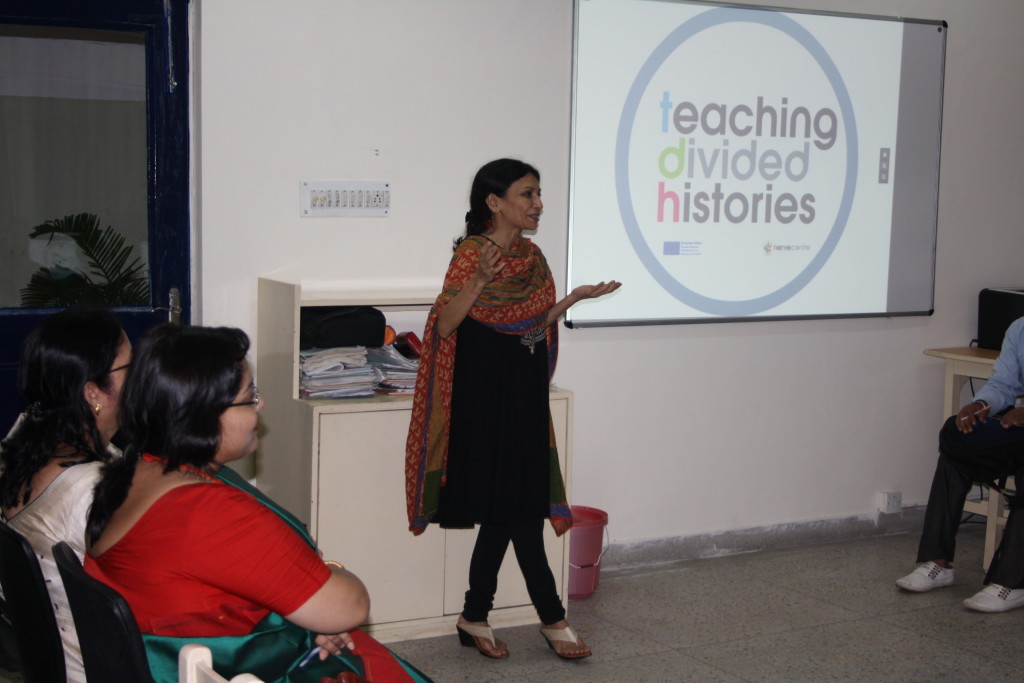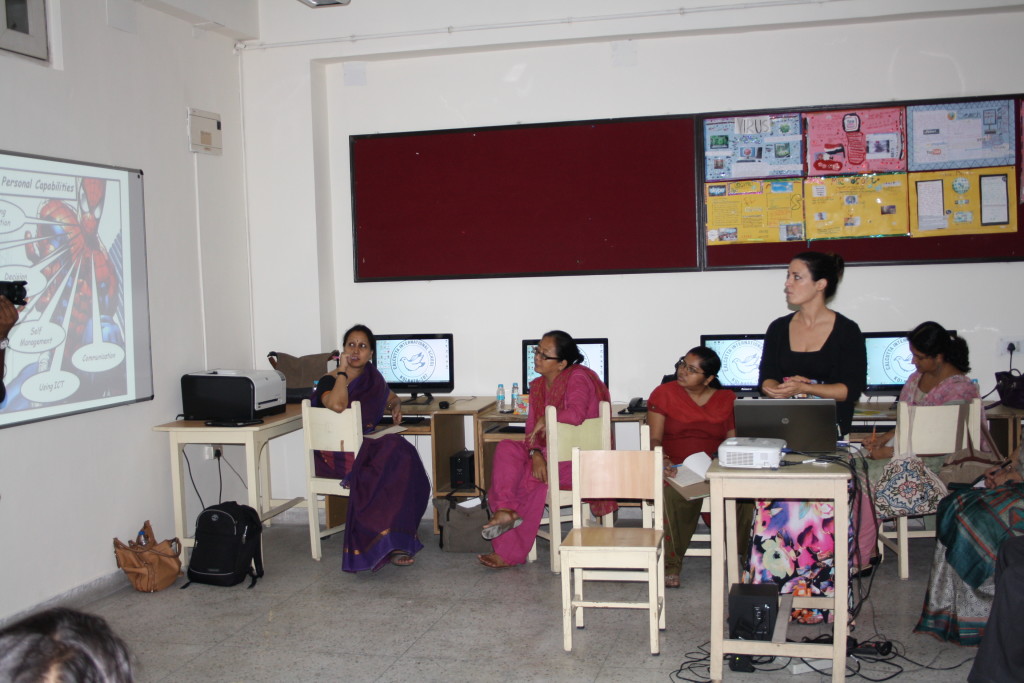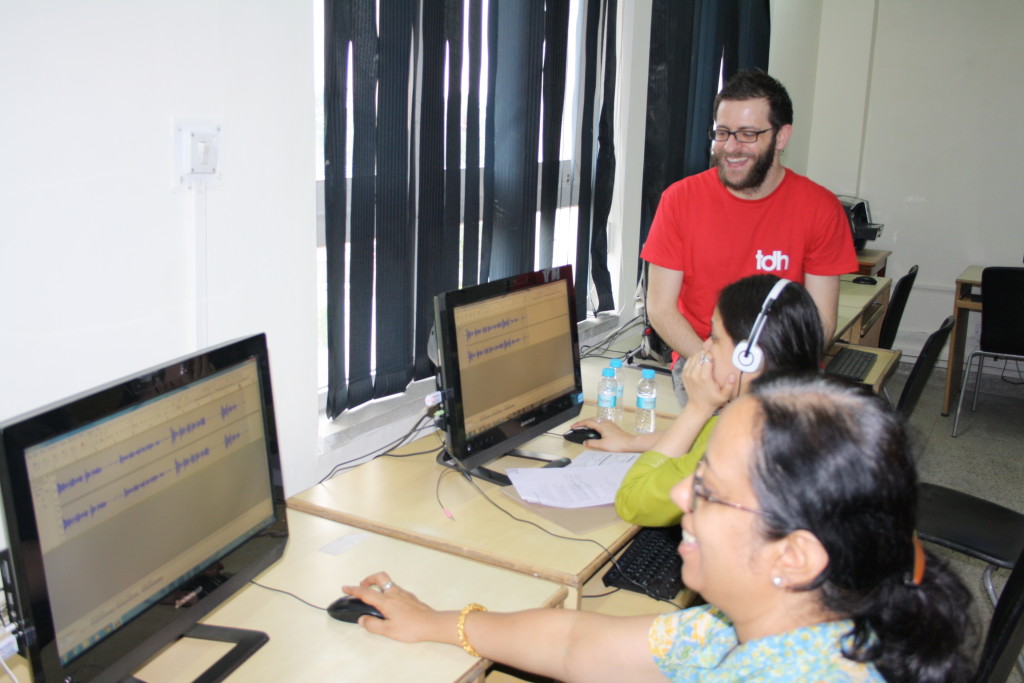PeaceWorks—An initiative of The Seagull Foundation for the Arts and the Nerve Centre in Northern Ireland conducted the Teaching Divided Histories Teacher Training Workshop from the 18th to the 21st of June at Calcutta International School. It consisted of two workshops of two days each, in which instructors Emma McDermott and Matthew McAleer worked with two groups, each consisting of twenty teachers.
The workshops aimed at demonstrating the use of digital media and creative technology in the teaching of conflict and offer stimulating ways of questioning mindsets and challenging sectarian stereotypes. The teachers were trained in the use of programmes that enabled digital audio editing, image editing, creating graphic novels, and moving image and film editing. On the first day of the workshop, teachers began by introducing themselves and sharing their methods and opinions on teaching conflict related history in the classroom. They were trained in the use of two softwares after which they completed group activities using these softwares. On the second day they were presented a teacher resource on the partition of the sub-continent developed by Meena Megha Malhotra of PeaceWorks, and a module on the Irish conflict developed by Matthew McAleer of Nerve Centre. After the two presentations, the teachers were trained in audio and filmmaking and editing softwares.
The module developed by PeaceWorks uses the softwares presented at the training and with the Partition of India and the Bangladeshi Liberation War as the backdrop connects to current global issues. The purpose of the module is to create an outsized perspective through the use of multiple resources including personal audio and visual accounts of the partition. It includes research, debate, and art assignments that aim at sensitizing students, breaking mindsets and bridging divides in the sub-continent. The long term plan is to develop partnerships between schools in the sub-continent and Northern Ireland under the British Council Connecting Classrooms program and share the output from each country to provide the students with multi perspectives.
Participants in the first workshop were teachers from Assam Valley School, Balipara, Assam; Modern High School; Apeejay School; Purwanchal Vidyamandir; Lakshmipat Singhania Academy; La Martiniere for Boys; Calcutta Girls High School; M. C. Kejriwal Vidyapeeth and Mahadevi Birla World Academy. On being presented the modules most teachers agreed on the need for an encompassing perspective on the teaching of conflict in history. However, they were unanimous in sharing the difficulties they face in terms of finding the time to incorporate anything that is outside the prescribed syllabus.
The second session had teachers from all over the subcontinent—Karachi High School, Pakistan; Rural Development Academy Laboratory School and College, Bangladesh; Kumira Residential Girls School and College, Bangladesh; Chandranath Girls High School, Bangladesh; Dubag Ideal Academy, Bangladesh; Shah Anwar Memorial Secondary School, Kashmir; SAi International School, Bhubaneshwar; Calcutta International School, Lakshmipat Singhania Academy, Calcutta Boys School, Birla High School and Sushila Birla Girls High School. The participants enjoyed interacting with each other and the diverse nature of the group lead to engaging conversations and provided different perspectives.
The schools from Bangladesh all agreed that the workshop was “very helpful and interesting” and that creating a larger context and perspective in the teaching of history is essential.
Showkat Ahmed Shah, a teacher from Kashmir, said that the bringing together of creative technology and the study of conflict in history was an innovative approach, but feared that the dearth of such technology at his school might make it difficult to implement such an approach.
Tina Servaia and Piali Ray from Calcutta International School said that sensitizing students towards the nuances of history is a very important issue, and despite their busy class schedules, have decided to take out time and work on such issues after school and outside class activities.
Taha Siddique from Karachi High School said “I would say this whole idea of teaching divided histories is great. There should be more such projects to clear the image between the countries sharing borders. After all it is a shared heritage.”
Karachi High School, Assam Valley School, Calcutta International School, Purwanchal Vidya Mandir and Modern High School have shown keen interest in implementing the module and working with their students for the year long next stage.
— Report by Divya Saraf



